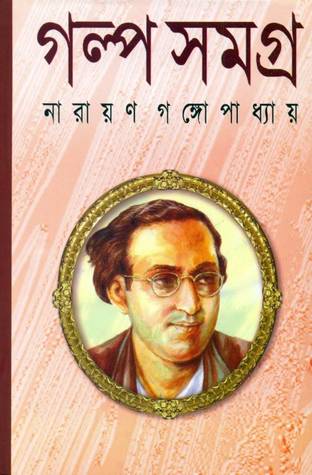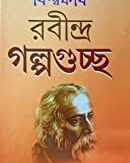Biswakabi Rabindra Galpaguchha written By Rabindranath Tagore
Rabindranath Tagore was born in Calcutta, India, on May 7, 1861. He was the son of Debendranath Tagore, a prominent philosopher and religious reformer. Throughout his childhood, Tagore was educated by tutors and wrote extensively, despite a marked disinterest for traditional schooling. In 1877, he sailed to England to study. He remained for just fourteen months, during which he was schooled in Brighton, East Sussex and at University College, where he studied law and attended lectures on English literature. He expressed dissatisfaction with the constraints of Western educational practices in England, however, and returned to India.
Throughout his career, Tagore not only wrote and translated poetry, but published numerous novels, short stories, plays, letters, essays, memoirs, and criticism. He was also known for his musical compositions. Tagore’s most notable work of poetry is Gitanjali: Song Offerings (Macmillan, 1912), for which he received the Nobel Prize in Literature in 1913. He was the first non-European, as well as the first lyricist, to win the prize. Other notable poetry publications, written and published in Bengali, include Sonar Tari [The Golden Boat] (1894) and Manasi [The Ideal One] (1890). Tagore often published first in Bengali, then translated his own work to English. He wrote novels, plays, and short stories in both languages, including the plays Chitra (India Society of London, 1914) and The Post Office (Cuala Press, 1914). He is credited with pioneering the short story form in Bengali literature, with some of his best work collected in The Hungry Stones and Other Stories (Macmillan, 1916) and The Glimpses of Bengal Life (G. A. Nateson & Co., 1913). His short stories were especially famous in India, as many were based on his ten years in Shilaidah and Shazadpur, where he went to manage his family’s estates in the 1890s. During this time, he lived on a houseboat on the Padma River and socialized with the neighboring villagers. His compassion for them, and his belief in education for all, deeply influenced his short stories, as well as his later activism. Tagore’s stances on Indian independence, the caste system, education, religion, and other sociopolitical issues were expressed through his work.








– janasupravat2017 (verified owner)
Value for money average page quality.not excellent but ok quality.